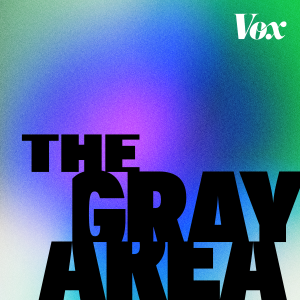
The Gray Area with Sean Illing
Society & Culture:Philosophy

JD Vance: the reluctant interpreter of Trumpism
 2017-01-24
2017-01-24
Download
Right click and do "save link as"
J.D. Vance's Hillbilly Elegy has been adopted as the book that explains Trumpism. It's the book that both Senator Mitch McConnell and Senator Rob Portman recommended as their favorite of 2016. It's a book Keith Ellison, the frontrunner to lead the DNC, brought up in our conversation last week. Everyone, on both sides of the aisle, has turned to Vance to explain What It All Means.All of which is a bit odd, because Vance's book is an awkward fit with Trumpism. As Vance describes it, it's about "what goes on in the lives of real people when the industrial economy goes south. It’s about reacting to bad circumstances in the worst way possible. It’s about a culture that increasingly encourages social decay instead of counteracting it." It's a memoir about growing up amidst a particular slice of the white working class — the Scots-Irish who settled in and around Appalachia — and the ways that both propelled Vance forward and held him back. It's a book about one man's story — a story that is universal in some ways, particular in others, but was certainly not written with Donald J. Trump in mind.Vance, today, works for an investment firm founded by Peter Thiel. He's an Iraq veteran and Yale-educated lawyer who fits comfortably among the elites he never expected to know. He's a conservative who doesn't like Trump, but has nevertheless become a favored interpreter for his movement. He's a private person who finds himself having shared the most intimate details of his life with total strangers.We talk about all that, as well as some specific debates that have emerged in the age of Trump, and that speak to issues in Vance's book:- The resentment members of the lower-middle class have towards the non-working poor - The ways in which the discussion over poor white communities has come to mirror the debate over poorer African-American communities- How Trump constructed an "other" that merged both marginalized communities and powerful elites- Slights Vance faced as a member of the military attending elite schools, and how that made him think about the broader debate over political correctness- The difference between "economic anxiety" and "cultural anxiety," and why it matters- How members of Vance's family reconcile their support for Trump with their close friendships with unauthorized immigrants- What he feels defines the values held by elites, and how they differ from those he grew up withAnd, as always, much more. Enjoy. Books:-Robert Putnam’s “Our Kids”-William Julius Wilson’s “The Truly Disadvantaged”-Charles Murray’s “Coming Apart”-Robert Tombs’s “The English and Their History”
Learn more about your ad choices. Visit megaphone.fm/adchoices
view more
Learn more about your ad choices. Visit megaphone.fm/adchoices
More Episodes
Neoliberalism and its discontents
 2019-10-24
2019-10-24
 2019-10-24
2019-10-24
The four words that will decide impeachment
 2019-10-21
2019-10-21
 2019-10-21
2019-10-21
We don’t just feel emotions. We make them.
 2019-10-17
2019-10-17
 2019-10-17
2019-10-17
How politics became a war against reality
 2019-10-14
2019-10-14
 2019-10-14
2019-10-14
The loneliness epidemic
 2019-10-10
2019-10-10
 2019-10-10
2019-10-10
Ibram X. Kendi wants to redefine racism
 2019-10-07
2019-10-07
 2019-10-07
2019-10-07
Malcolm Gladwell’s Stranger Things
 2019-10-03
2019-10-03
 2019-10-03
2019-10-03
An inspiring conversation about democracy
 2019-09-30
2019-09-30
 2019-09-30
2019-09-30
When meritocracy wins, everybody loses
 2019-09-23
2019-09-23
 2019-09-23
2019-09-23
Randall Munroe, the genius behind XKCD
 2019-09-16
2019-09-16
 2019-09-16
2019-09-16
Julián Castro's quiet moral radicalism
 2019-09-12
2019-09-12
 2019-09-12
2019-09-12
Political animals (with Leah Garcés)
 2019-09-09
2019-09-09
 2019-09-09
2019-09-09
012345678910111213141516171819
Create your
podcast in
minutes
- Full-featured podcast site
- Unlimited storage and bandwidth
- Comprehensive podcast stats
- Distribute to Apple Podcasts, Spotify, and more
- Make money with your podcast
It is Free
- Privacy Policy
- Cookie Policy
- Terms of Use
- Consent Preferences
- Copyright © 2015-2024 Podbean.com


